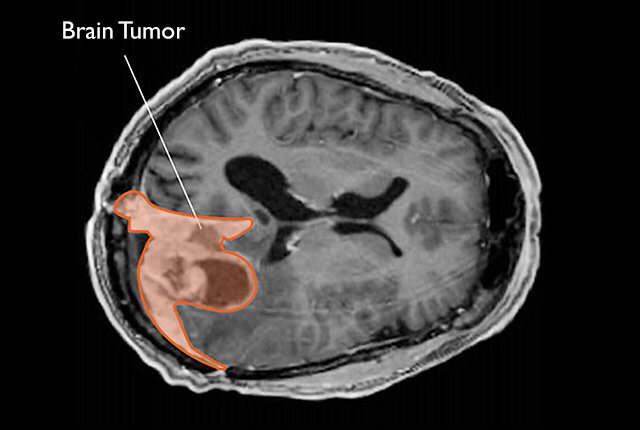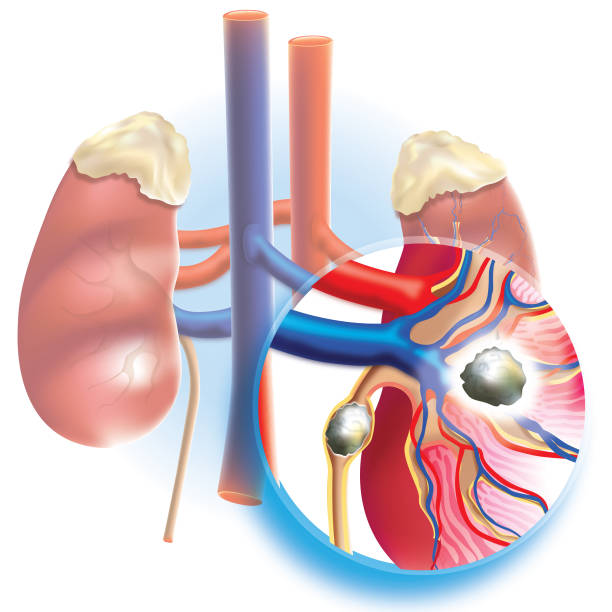Every morning is a fresh canvas. The way we begin our day not only influences our productivity but also shapes our physical vitality and emotional well-being. A morning routine is more than a collection of habits; it is a psychological signal to the body and mind that a new cycle has begun. The tone we set in the first hours of our day ripples across the following hours, sometimes subtly, sometimes dramatically.
Science has shown that our minds are particularly receptive in the early morning. Hormonal rhythms, brain activity patterns, and circadian cycles prime us for certain behaviors. Cortisol, often referred to as the “alertness hormone,” peaks in the early morning, preparing the body to wake up and engage with the world. Melatonin, the hormone that induces sleep, recedes at dawn, leaving us biologically ready for clarity and action. When we align our routines with these natural rhythms, we not only work with our bodies but also elevate both physical and mental health.
The Importance of Rituals in Human Life
Human beings have always lived by rhythms and rituals. Ancient communities welcomed the sunrise with chants, prayers, or physical activities that aligned with their cultural and spiritual beliefs. These practices were not merely symbolic; they were grounding mechanisms that stabilized mental states, built resilience, and provided a sense of connection to something larger than oneself. In modern times, the rituals may look different—journaling instead of chanting, yoga instead of communal dance—but the underlying human need remains.
Morning rituals, in particular, anchor us in a world that often feels chaotic. They become a refuge of consistency in lives otherwise filled with uncertainty. Neuroscience research highlights the importance of routines in reducing stress because habits automate decisions, sparing our brains from constant decision fatigue. In this way, the morning routine is not just a lifestyle choice but a neurological gift we give ourselves.
Awakening the Body with Movement
The human body thrives on movement. After a night of stillness, circulation is slower, joints are stiffer, and muscles may feel heavy. Morning movement helps transition the body from rest to activity, stimulating blood flow, increasing oxygen delivery to the brain, and igniting the metabolism.
Exercise in the morning, even when modest, creates profound physiological benefits. Aerobic movement—whether brisk walking, cycling, or dancing in your living room—stimulates endorphins, the neurotransmitters that elevate mood and reduce anxiety. Resistance training enhances muscle strength and bone density, which are essential for long-term physical health. Stretching, yoga, or tai chi improve flexibility, balance, and awareness, cultivating a gentler but equally vital connection to one’s body.
Beyond physical benefits, morning movement improves cognitive performance. Studies have shown that exercise in the early hours enhances memory, focus, and creativity throughout the day. In many ways, moving in the morning is like sharpening a mental blade—it equips us to cut through the noise of daily life with clarity.
The Healing Force of Morning Light
Light is not only a tool to see the world; it is a biological signal that governs our internal clocks. Exposure to natural light in the morning synchronizes circadian rhythms, stabilizing sleep patterns and energy levels. When sunlight enters the eyes, it stimulates specialized retinal cells that communicate with the brain’s suprachiasmatic nucleus, the body’s master clock. This process suppresses melatonin, increasing wakefulness, and strengthens the rhythm of cortisol release.
Morning light has been linked to improved mood, reduced risk of depression, and better overall mental health. Researchers studying seasonal affective disorder (SAD) have demonstrated how even artificial light exposure in the morning can alleviate symptoms of low mood and fatigue. For those who struggle with insomnia or irregular sleep, morning light exposure becomes a simple yet powerful therapy.
Spending even 10 to 20 minutes outside shortly after waking—whether walking, meditating, or simply sipping tea—creates a cascade of biological effects that reverberate through the day and into the night.
Nourishing the Body with Morning Nutrition
Breakfast has long been called the “most important meal of the day,” and while the scientific debate continues over whether that phrase is universally true, there is no denying the significance of mindful morning nourishment. After hours of fasting during sleep, the body is eager for replenishment. What we choose to consume in the morning shapes energy levels, metabolic function, and cognitive sharpness.
Balanced morning meals that include proteins, healthy fats, and complex carbohydrates stabilize blood sugar and prevent the spikes and crashes that lead to fatigue or irritability. Proteins from eggs, yogurt, or legumes help repair tissues and support neurotransmitter production. Complex carbohydrates from whole grains or fruits provide steady energy. Healthy fats from nuts, seeds, or avocado enhance brain function and satiety.
Equally important is hydration. After six to eight hours without water, the body is mildly dehydrated. A glass of water upon waking aids digestion, circulation, and alertness. Some cultures add lemon or herbal infusions for flavor and added antioxidants, transforming hydration into a mindful ritual.
The science of nutrition reminds us that our brains consume about 20% of our body’s total energy. Thus, a thoughtful breakfast is not merely about physical health but also about supporting focus, memory, and emotional stability.
The Quiet Strength of Morning Mindfulness
In a world of constant noise and demands, mindfulness practices in the morning restore balance and serenity. Meditation, deep breathing, journaling, or prayer act as psychological grounding wires. These practices activate the parasympathetic nervous system, reducing stress hormones and cultivating emotional regulation.
Meditation, in particular, has been shown to alter brain structures linked with memory, attention, and empathy. Even short daily practices increase resilience against anxiety and depression. Mindful breathing, where attention is focused on the rhythm of inhaling and exhaling, stabilizes the heart rate and lowers blood pressure. Journaling helps externalize thoughts and emotions, preventing mental clutter from dominating the day.
By beginning the day with mindfulness, we step into life with greater presence and intentionality. Instead of reacting impulsively to stressors, we respond with clarity and calm. The mind, like the body, benefits immensely from a morning warm-up.
The Role of Purpose and Intention
Physical health and mental wellness are not only sustained by habits of the body but also by the direction of the mind. Setting intentions in the morning creates a compass for the day. While to-do lists may focus on productivity, intention setting focuses on meaning.
Psychological research shows that individuals with a clear sense of purpose experience lower stress, greater resilience, and even improved longevity. Morning intention-setting can take many forms: writing a motivational affirmation, visualizing the kind of person one wishes to be, or simply reflecting on what matters most that day.
By weaving purpose into the early hours, we transform daily actions from mere tasks into meaningful expressions of our values. This alignment strengthens both mental health and physical energy, since motivation is one of the most potent drivers of human behavior.
The Science of Consistency
Consistency, rather than intensity, determines the success of morning routines. Neuroscience explains why: the brain thrives on patterns. Each time we repeat an action, neural pathways strengthen, making the behavior easier and more automatic. Over time, morning routines become self-reinforcing loops that require less conscious effort and provide greater stability.
Irregular routines, in contrast, destabilize circadian rhythms, stress hormonal cycles, and increase decision fatigue. When we wake at different times, skip meals randomly, or inconsistently practice mindfulness, the body and mind lose their anchors. Consistency does not mean rigidity; it means respecting the body’s need for predictability while allowing flexibility for life’s changes.
By establishing consistent routines, we give ourselves a gift far more valuable than fleeting motivation—we build resilience.
The Interconnection Between Body and Mind
One of the most profound aspects of morning routines is how they unify physical and mental health. Movement influences mood; nutrition shapes cognition; mindfulness regulates physiology. Modern science affirms what ancient traditions intuited: the body and mind are not separate entities but an interconnected system.
A person who begins the day with exercise often feels mentally sharper. Someone who practices meditation finds that stress does not just decrease but also that the immune system functions more effectively. Nutrition stabilizes both energy and emotional states. The morning routine, therefore, is not a series of disconnected tasks but a symphony in which each element amplifies the others.
Overcoming Resistance and Building Rituals
While the benefits of morning routines are clear, many people struggle with implementation. Fatigue, lack of time, or motivational hurdles can stand in the way. Understanding resistance is part of the journey. Behavioral psychology teaches us that habits are best built gradually, with small, sustainable steps.
Instead of overhauling the entire morning, one might begin with a single practice—drinking water upon waking, stepping outside for five minutes of sunlight, or practicing three minutes of mindful breathing. As these small rituals embed themselves, they create momentum.
The emotional element is also essential. Morning routines should not feel like punishment but like nourishment. They should be imbued with pleasure, whether through enjoying the flavor of breakfast, the beauty of sunlight, or the calm of deep breathing. Positive reinforcement ensures that routines become sustainable rather than burdensome.
The Morning as a Mirror of Life
In many ways, the morning routine reflects the larger journey of life itself. It is a microcosm of choices, intentions, and alignments. Just as the morning determines the day’s trajectory, daily habits shape the trajectory of years.
Philosophers and poets have long spoken of dawn as a symbol of rebirth. Every morning, we are offered a second chance—a chance to begin anew, to align more closely with health, wisdom, and purpose. Morning routines, then, are not merely practical strategies but symbolic acts of self-respect and renewal.
The Future of Morning Science
As our understanding of neuroscience, chronobiology, and psychology advances, morning routines will likely evolve. Technology may one day create personalized routines based on genetic markers, sleep data, and biometrics, optimizing every element from nutrition to exercise. Smart environments may adjust light, temperature, and sound to support optimal awakening.
Yet, no matter how advanced our knowledge becomes, the essence will remain the same: the morning is a sacred space for aligning body, mind, and spirit. Ancient wisdom and modern science converge on this truth.
Conclusion: Choosing the Day Before It Chooses You
Morning routines are not about perfection. They are about intentional beginnings. By moving our bodies, absorbing light, nourishing ourselves, practicing mindfulness, and setting purpose, we create conditions for health and resilience.
Science confirms what human experience has always known: how we greet the morning influences how we live the day, and how we live our days shapes the story of our lives. A mindful morning routine is not only an investment in productivity but a profound act of self-care. It is the moment where health, happiness, and purpose are seeded.
Every dawn whispers an invitation: to rise, to breathe, to move, to nourish, to center. Those who answer that invitation with intention find that the day, and indeed life itself, becomes not just something to endure but something to celebrate.






